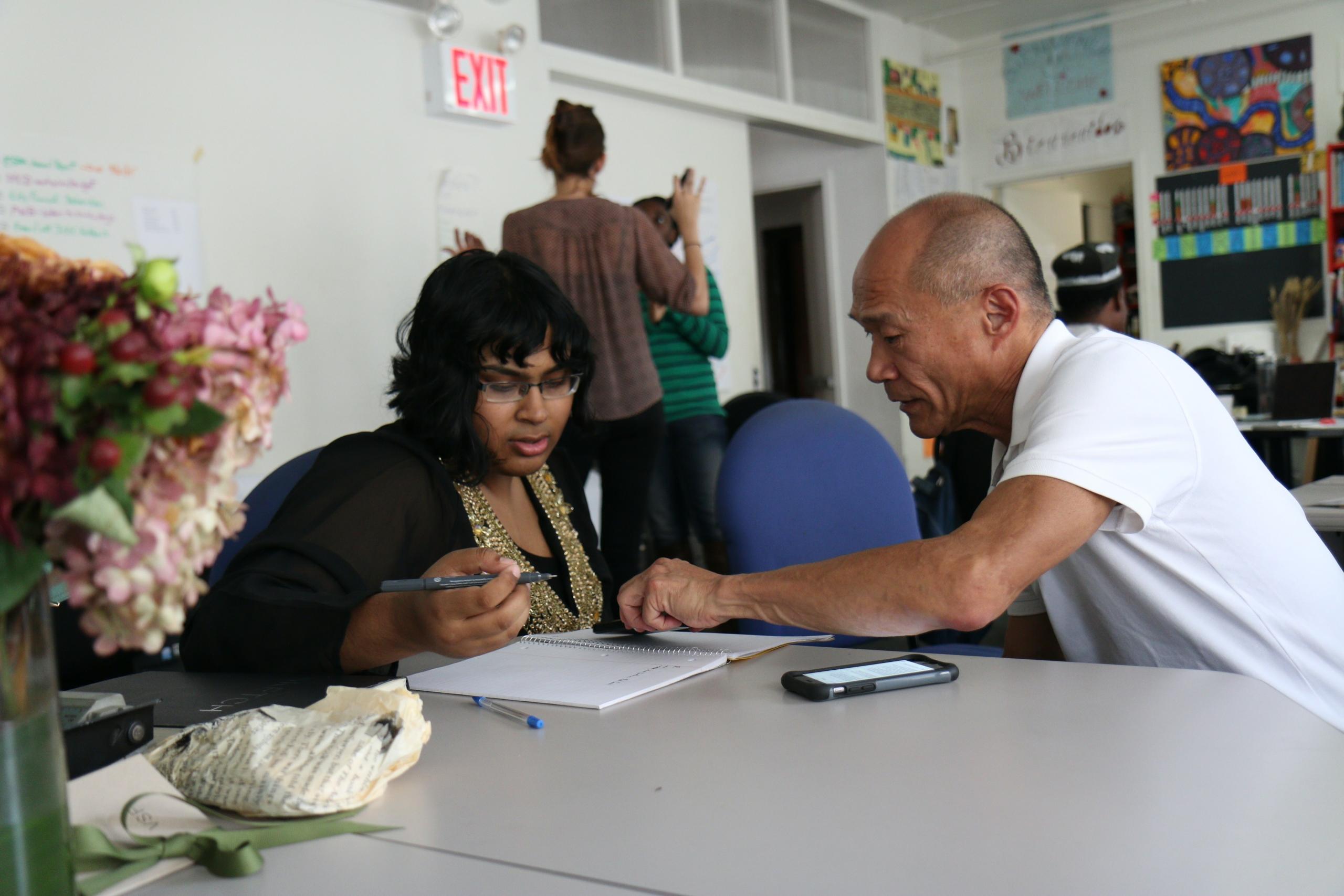Internships are one way of entering the job market that allows you to benefit from student status, if you are a student, and experience the joys of work from an early age. Yes, by putting into action the theoretical lessons learned in class, internships can have a real advantage over other employees.
But becoming an intern is not always that easy! Indeed, finding an internship or other types of work placements could sometimes be compared to finding a typical job – but actually, many times it’s even harder! Between the applications and the limited number of places available, it's not that easy.
There are many different factors that aspiring interns can look for when they’re just starting their search for internships and work placements. Whether you’re a university graduate looking for a summer internship in London or an older adult looking to switch their career by taking on internship jobs, here are all our tips for choosing the right training and learning centre!

Take a Look at Company Review
This first criterion is one of the best indicators for prospective interns on whether their internship and work placements will give them the experience they’re looking for. It can also give a great dose of reality to those dream jobs that you may have accepted otherwise.
The best way you can determine whether an internship experience will give you what you are looking for is to take a look at the reviews that the company has. This can be done one of two ways depending on what your job network looks like:
- Reach out to current or past interns
- Check online reviews
The first method requires a bit more tact. While you can attempt to reach out to every single person you can find on LinkedIn and see who responds to ask about a particular company, it will save you a lot of time and effort if you narrow it down to people who are currently or have been in the role you’re looking at.
However, not everyone appreciates being contacted in this manner so please use some common sense and judgment. Reach out to your university’s alumni office to see if there’s anyone they can put you in contact with to ask about intern jobs at specific companies.
As an aspiring intern, the easiest way you can go about researching what a company or position is like is to look a company up on the internet. One of the best websites for looking at company reviews is Glassdoor.
Not only can you narrow down reviews by city, you can also take a look at reviews that were given by specific jobs and job roles. So if you’re looking for work placements or internships in London, for example, you will be able to filter for reviews that pertain to that company’s London offices.
This can be especially helpful for international companies. Not only because they have jobs in multiple countries, but because different offices around the world may produce different experiences even with the same company.
Will You Get a Job After the Internship?
If your goal for an internship is to jump into the job market, the easiest way to do that is to find an internship opportunity that can also offer you a job in the same company after the completion of the internship.
This can be a bit more difficult if you’re a university student that takes a summer internship, as you will most likely not be able to work full-time after the conclusion of the internship. So keep in mind that companies will usually not wait for you if you cannot start right away.

The best way for interns to turn an internship into a full-time job, if that is their wish, is to narrow their search down to those companies that actually want to hire interns after their experience.
This is the best way to go because it means that the company already intends to open up a role for you and already has the budget to hire another person on their team. If getting a job after your intern experience is what you want, you can also follow these guidelines to make that crucial good impression:
- Set up professional goals with your manager and meet them
- Develop a good and strong relationship with your manager
- Complete the tasks and projects assigned to you on time
- Ask for feedback from your colleagues and managers
If a full-time job is not what you want out of your internship, you can also measure the quality of an intern role by taking a look at the success of previous people in that role. By searching on LinkedIn, you can actually see past interns in the company you are considering.
Take a look at their profile and see if their career or academic trajectory matches what you want to do with your life. If it does, chances are that the internship they took helped them take the right steps in that direction.
To find out more, you can either :
- Find out more on the internet,
- Check whether a network of former students exists, in order to ask them for information,
- Contact the institution directly, which will also be able to provide information on the employment rate after the role you wish to take.
Whether you’re a university graduate or already have a summer internship under your belt, don’t be afraid to ask questions at your interview about anything related to a prospective job!
From a financial point of view, internships are indeed very advantageous training. Beyond the school, the student earns his or her own salary with the associated rights. All this while maintaining student status if they are a student and its advantages. A winning combination!
Ask Questions at Your Interview
To make sure that the reputation and success rate match your expectations, or if you have any questions, you can always do your research about the role you’re interested as we’ve mentioned:
- By talking to trainers or former apprentices,
- By looking at the overall condition of the structure,
- By examining the equipment offered according to the type of course,
- Etc.
However, there are many factors that you won’t be able to determine by yourself. Regardless of whether you already live in London and are looking at summer internships in your city or if you live outside the UK and are looking for graduate intern opportunities, there will always be unanswered questions with regard to an internship role.
You can take the internship interview as an opportunity to clear up these unanswered questions. Here are some of the best questions you can ask as a prospective intern:
- How many hours do people in this role work?
- Do people in this role tend to work any extra hours?
- How many days of vacation do I get? What about unpaid leave?
- What do you like most about the company?
- What does a typical day look like for this position?
- How is success measured in this role?
- What are some of the career opportunities offered after this role is completed?
These are just some of the questions that will help make sure that your intern role is not just a culture fit but also meets your financial and personal expectations.

Internships for International Students
This year alone there are hundreds of thousands of new workers entering the world of work. However, getting a chance to apply your skills in a new job is not easy for everyone. Specifically, if you are an employer or organisation that wants to hire a new, international employee.
On the other hand, if you’re an international student wanting to start working in a paid internship and expand into different careers, a working placement or internship can be especially helpful. However, there are some things you should keep in mind as an employee or a new employee entering a new company or organisation.
Employers and employees should be careful to take a look at the different working conditions for international paid careers, regardless of the skills of the employee. People with Tier 4 Student Visas should keep in mind:
- A paid work placement or internship career cannot exceed 20 hours a week if it is not an integral part of the student’s full-time degree programme.
Take a look at an organisation specialized in helping with employer rules and careers such as ACAS for more information.
If a work placement or paid internship is an integral part of your degree, this means that your employer can offer you full-time careers as long as the work placement or internship does not exceed 50% of the length of the organisation of your programme.
Employers should have the skills and resources necessary to help you understand what the rules are for your work agreement. If you have any questions, it is always best to ask your employer directly what contract is allowed for you as an international employee.
Summarise with AI:















